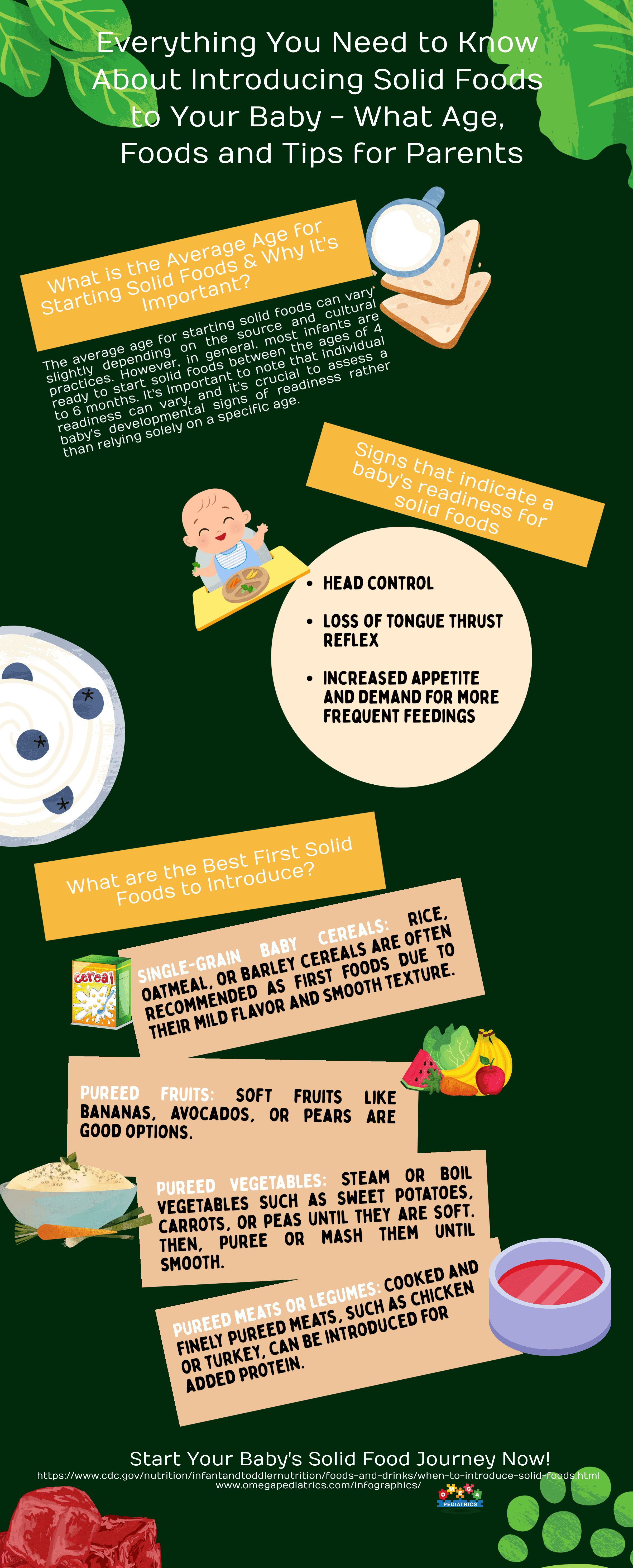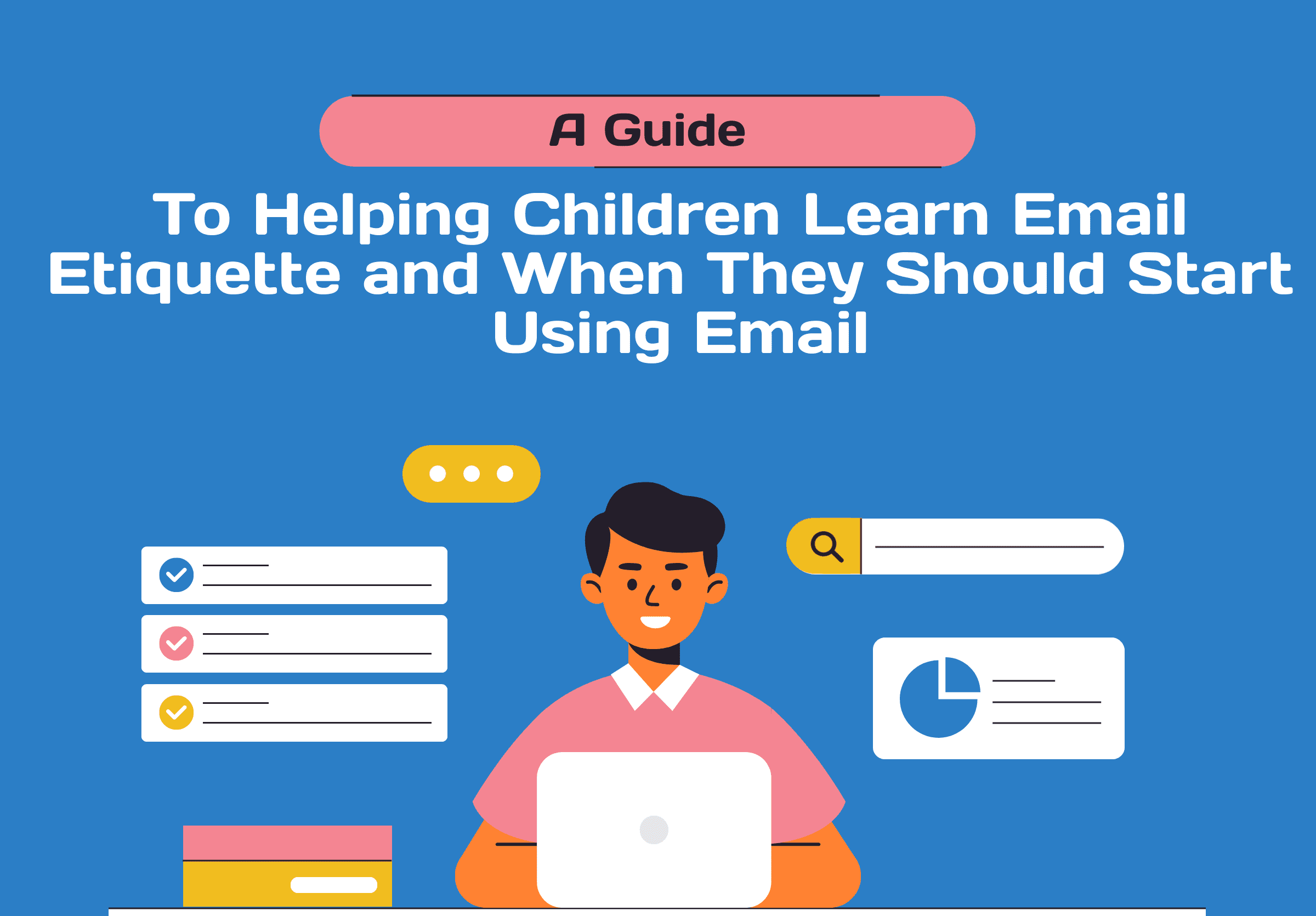What is the Average Age for Starting Solid Foods & Why It’s Important
The average age for starting solid foods can vary slightly depending on the source and cultural practices. However, in general, most infants are ready to start solid foods between the ages of 4 to 6 months. It’s important to note that individual readiness can vary, and it’s crucial to assess a baby’s developmental signs of readiness rather than relying solely on a specific age.
There are a few key developmental signs that indicate a baby’s readiness for solid foods:
- Head control: The baby should be able to hold their head steady and sit upright with minimal support. This is important for safe swallowing and digestion.
- Loss of tongue thrust reflex: Infants have a natural reflex to push out anything placed in their mouth with their tongue. When this reflex diminishes, it’s a sign that they are ready to handle more solid textures.
- Increased appetite and demand for more frequent feedings: If the baby seems unsatisfied with breast milk or formula alone and is showing interest in the food others are eating, it may be an indication that they are ready for solids.
Starting solid foods at the appropriate time is important for several reasons:
- Nutritional needs: Around 4 to 6 months, an infant’s iron stores from birth begin to decrease. Introducing iron-rich solid foods, such as fortified cereals or pureed meats, can help meet their increasing nutritional requirements.
- Development of oral motor skills: Transitioning to solid foods encourages the development of chewing and swallowing skills, which are essential for speech and language development.
- Exposure to new flavors and textures: Introducing a variety of foods early on can help broaden a child’s palate and increase acceptance of different flavors and textures later in life.
- Independence and self-feeding skills: As babies start solid foods, they gradually develop the ability to self-feed, promoting independence and fine motor skills.
What are the Best First Solid Foods to Introduce
- Single-grain baby cereals: Rice, oatmeal, or barley cereals are often recommended as first foods due to their mild flavor and smooth texture. They are typically fortified with iron, which is important for a baby’s development. To prepare, mix the cereal with breast milk, formula, or water to achieve a thin, smooth consistency.
- Pureed fruits: Soft fruits like bananas, avocados, or pears are good options. Start by mashing or pureeing the fruit until it reaches a smooth consistency. You can also mix in a small amount of breast milk or formula to adjust the texture if needed.
- Pureed vegetables: Steam or boil vegetables such as sweet potatoes, carrots, or peas until they are soft. Then, puree or mash them until smooth. You may also add breast milk, formula, or water to achieve the desired consistency.
- Pureed meats or legumes: Cooked and finely pureed meats, such as chicken or turkey, can be introduced for added protein. Similarly, cooked and mashed legumes like lentils or chickpeas are good options for plant-based protein sources.
Conclusion
In conclusion, the average age for starting solid foods for infants is generally between 4 to 6 months, although individual readiness should be assessed based on developmental signs rather than relying solely on a specific age. Key signs include head control, the loss of the tongue thrust reflex, and an increased appetite with a demand for more frequent feedings.
Starting solid foods at the appropriate time is crucial for meeting nutritional needs, particularly as infants’ iron stores begin to decrease around 4 to 6 months. Introducing iron-rich foods, such as fortified cereals or pureed meats, aids in meeting their growing nutritional requirements. Additionally, the transition to solid foods promotes the development of essential oral motor skills, exposure to new flavors and textures, and the cultivation of independence and self-feeding skills.
The best first solid foods to introduce include single-grain baby cereals (rice, oatmeal, or barley), pureed fruits (bananas, avocados, or pears), pureed vegetables (sweet potatoes, carrots, or peas), and pureed meats or legumes (chicken, turkey, lentils, or chickpeas). These foods provide essential nutrients, introduce diverse flavors, and contribute to the development of the child’s palate and motor skills. Parents and caregivers should tailor the introduction of solid foods to the individual needs and readiness of their infants while considering the recommended developmental milestones.




